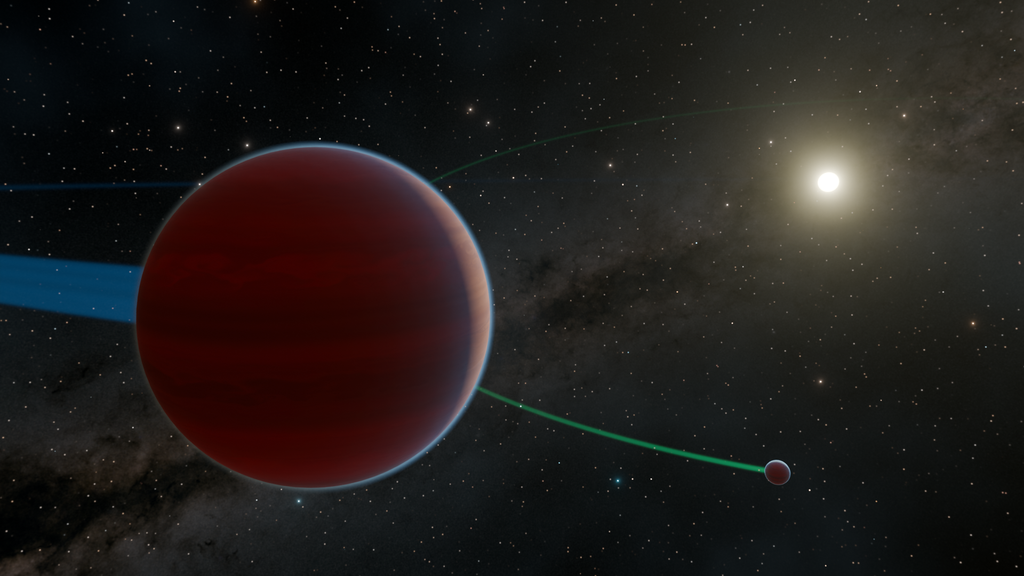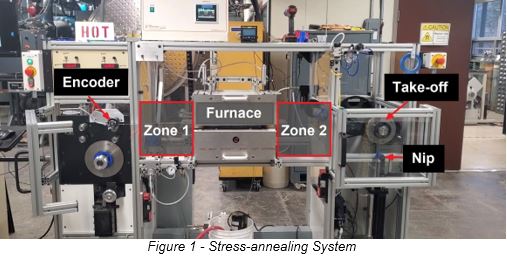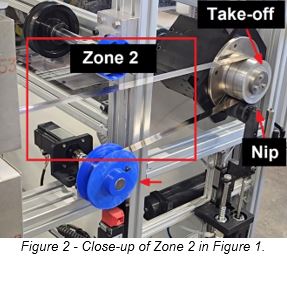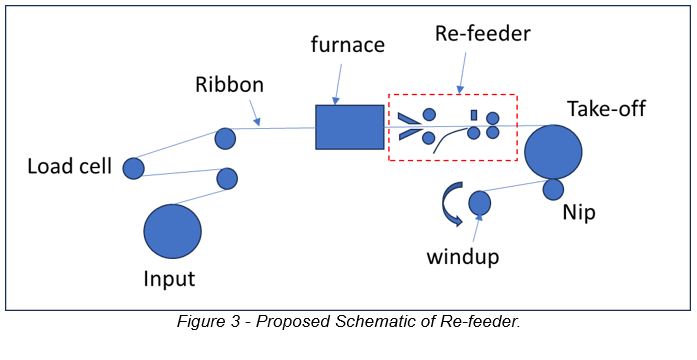Autonomous Ribbon Refeeding System for Stress-Annealing Soft-Magnetic Nanocomposites
Nickolaus M. Bruno, NASA Subject Matter Expert
Description
Stress-annealing processes currently define the state-of-the-art for manufacturing high efficiency gapless filter inductors comprised of nanocrystalline soft-magnetic alloys. However, a continuous in-line process is often difficult to attain due to ribbon embrittlement and mode 1 fracture that originates at cast defects on the ribbon edges. This proposed design project seeks a modular subsystem useful for refeeding broken ribbon between two spools while winding, either entering or exiting a furnace under tension. Rewinding will be performed at room temperature and the ribbon tension at the time of failure is expected to be between 0 N and 250 N.
Figure 1 – Stress-annealing System
Figure 2 – Close-up of Zone 2 in Figure 1.
Project Objectives
Investigate current methods of refeeding metallic or non-metallic webs. Develop a compact solution to refeed, splice, and spool a broken web of 1-inch-wide x 20 micrometer thick metallic ribbon.
Design, build, and test a prototype.
Figure 3 – Proposed Schematic of Re-feeder.
Type of Project
Prototype – Funding of up to $5,000.00 is available for the selected institution.
Disciplines Required
Mechanical Engineering, Electrical Engineering, Robotics
NASA Gateway Registration
Faculty advisors, please make sure every member of your team completed the agreement form.
- Click “Apply Now” (opens September 13, 2024).
- If you have never created an identity in NASA Gateway, please click “Not a member? Sign up!”
- Create your identity and sign up for the project you are planning to complete.
To access the Gateway Registration, faculty advisors click here.
Contact Information
Gerald Voltz
Education Program Specialist
Email: GRC-Ed-Opportunities@mail.nasa.gov
Phone: (216) 433-6656
Glenn Research Center – Office of STEM Engagement
Latest Content
Stay up-to-date with the latest content from NASA as we explore the universe and discover more about our home planet.

Since launching in 2023, NASA’s Tropospheric Emissions: Monitoring of Pollution mission, or TEMPO, has been measuring the quality of the…
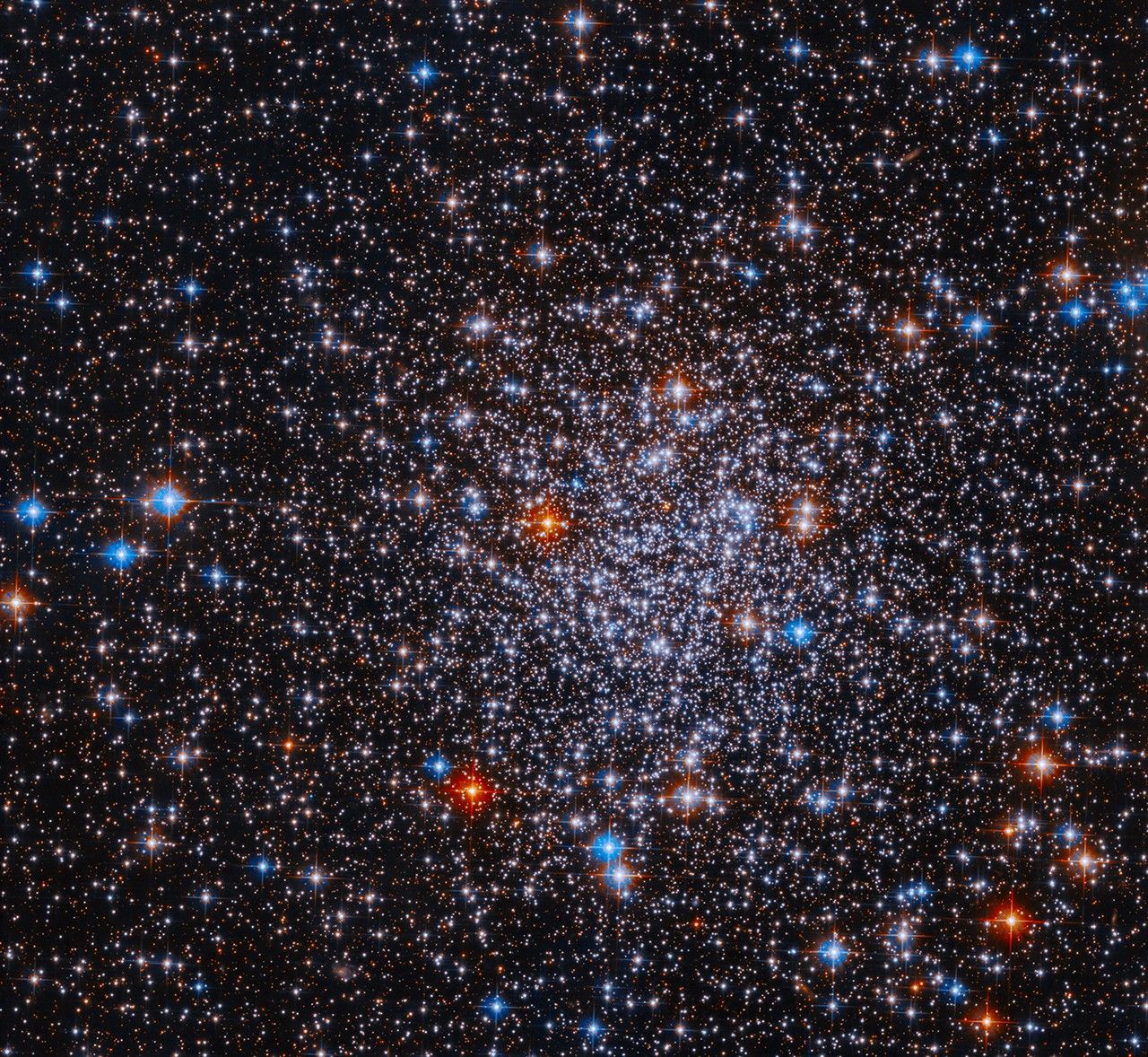
A previously unexplored globular cluster glitters with multicolored stars in this NASA Hubble Space Telescope image. Globular clusters like this…
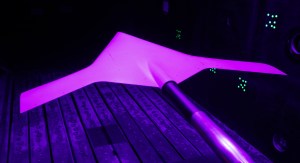
Many of us grew up using paint-by-number sets to create beautiful color pictures. For years now, NASA engineers studying aircraft…














